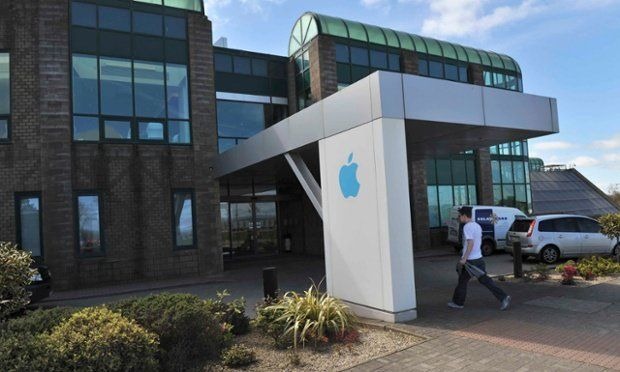The U.S. Treasury Department issued a special white paper on Wednesday, threatening that it will "consider potential responses" should the European Commsission demand that Ireland collect billions of euros in back taxes from Apple.
"This shift in approach appears to expand the role of the [E.U. competition directorate] beyond enforcement of competition and state aid law...into that of a supranational tax authority," the paper said according to the Financial Times. The document was commissioned by Treasury Secretary Jack Lew.
The European Commission first began looking into Apple's Irish tax situation in 2013, suggesting that the Irish government may have given Apple preferential treatment in order to attract jobs and money. Through tax loopholes, the company ended up paying just 2 percent on funneled international revenue, well below the normal 12.5 percent tax rate. A judgment could finally be issued in September.
The EU has already rendered judgments against the Netherlands and Luxembourg, which were accused of offering illegal state aid to Starbucks and Fiat Chrysler, respectively. That may not bode well for a ruling on Apple.
Indeed, the Treasury paper claimed that a finding against Apple and Ireland would undermine tax "certainty," and create a precedent under which other agencies will seek "large and punitive retroactive recoveries from both U.S. and E.U. companies."
The issue of corporate tax avoidance has gained increasing attention in recent years, driven by concerns about wealth inequality and increasing strain on government budgets and services. Earlier this year, the so-called Panama Papers exposed numerous businesses and individuals using that country as a tax haven, some legally and some not.
 Roger Fingas
Roger Fingas








 Charles Martin
Charles Martin
 Christine McKee
Christine McKee
 Wesley Hilliard
Wesley Hilliard
 Malcolm Owen
Malcolm Owen
 Andrew Orr
Andrew Orr
 William Gallagher
William Gallagher
 Sponsored Content
Sponsored Content








101 Comments
How dare the EU investigate a potential breach of the rules and omg then enforce any ruling.
There is no punitive recovery if the deal between Apple and Ireland is found to breach the rules.
Apple followed LEGAL Tax Laws!!! Apple didn't put the loopholes into the tax code, the politicians did. Now they want to change the rules and steal money from company's. That's exactly what they are doing, Government stealing. Really, it's nothing new. You want to change the rules and close the loopholes, great, the extra taxes taken start at that point forward. I don't have a problem with that. American company's will slowly start to leave where it makes the most sense.
The Treasury Dept. is bummed because if the EU collects more taxes from Apple, Apple will be able to deduct that amount from what they would
owe the U.S. if they patriated their offshore holdings at some point.